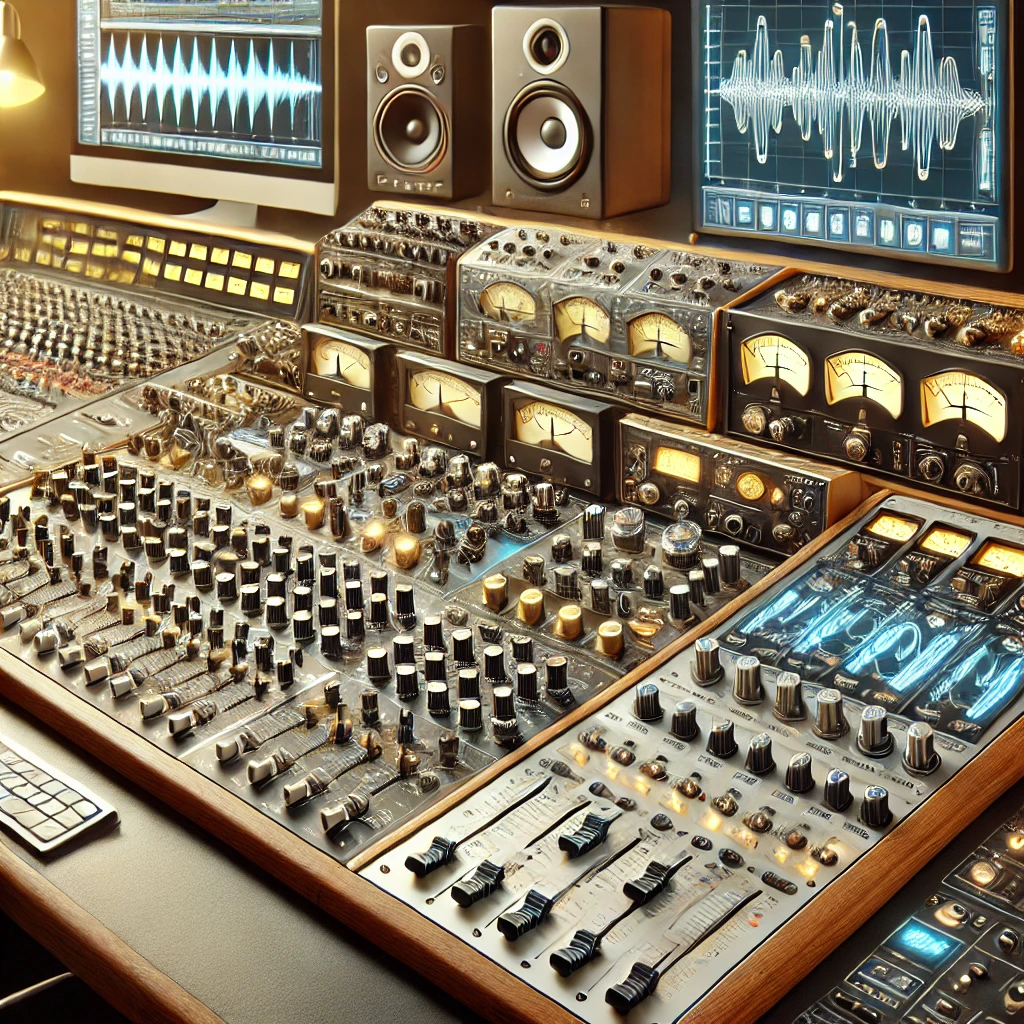In today’s fast-paced world of sound engineering, hybrid audio technologies are making a big impact. This field merges both analog and digital audio systems, creating powerful, adaptable audio experiences. Whether in music production, live performances, or immersive home audio setups, hybrid audio technologies are quickly becoming the go-to solution for professionals and enthusiasts alike. This article explores the main features, benefits, and applications of these innovative sound technologies.
Table of Contents
What Are Hybrid Audio Technologies?
Definition and Core Concept
Hybrid audio technologies combine analog and digital audio processing. Analog sound is known for its warmth and natural tone, while digital systems offer precision, flexibility, and convenience. Hybrid audio systems bring the best of both worlds, creating a versatile setup for various applications. By integrating analog warmth with digital control, hybrid systems provide a seamless audio experience, enhancing sound quality and functionality.
Benefits of Hybrid Audio Systems
Enhanced Sound Quality
One of the primary advantages of hybrid audio technologies is their superior sound quality. Analog systems provide richness and depth, while digital processing enhances clarity and detail. By merging these, hybrid setups offer high-fidelity sound that captures the nuances of each audio component.
Flexibility and Control
With digital integration, hybrid audio systems provide precise control over audio parameters. This flexibility is particularly useful for sound engineers, who can manipulate settings easily. These systems also allow for quick adjustments, perfect for live performances and studio recording.
Key Components of Hybrid Audio Technologies
Analog Components
Analog elements in hybrid systems usually include preamps, compressors, and equalizers. These components are valued for their ability to add warmth and texture to audio signals, which digital systems alone may lack. Preamps, for instance, boost weak signals without compromising sound quality, while compressors control volume levels, enhancing overall audio smoothness.
Digital Components
Digital processing includes components like digital audio workstations (DAWs), audio interfaces, and signal processors. These digital tools provide flexibility and efficiency, allowing for quick adjustments and automation. Audio interfaces convert analog signals to digital, making it easy to edit and fine-tune audio in real-time.
Applications of Hybrid Audio Technologies
Music Production
In music production, hybrid audio technologies allow producers to create rich, layered sounds. With the combination of analog warmth and digital precision, artists can craft sounds that stand out. Many studios now rely on hybrid systems to capture the best of analog and digital, helping artists produce high-quality music that resonates with listeners.
Live Sound Engineering
For live sound engineering, hybrid audio systems offer unmatched flexibility. Engineers can adjust audio settings in real-time, ensuring top-notch sound quality throughout performances. Digital controls make it easier to respond quickly to any changes, while analog elements add depth and texture to the sound, enhancing the listener’s experience.
Home Audio and Entertainment Systems
Home audio systems are also benefiting from hybrid audio technologies. These systems provide high-quality audio for home theaters, gaming setups, and music listening. By using hybrid technology, users enjoy immersive sound, whether they’re watching a movie, gaming, or listening to music.
How Hybrid Audio Technologies Are Shaping the Future
Continued Innovation
As technology advances, hybrid audio systems continue to evolve. Companies are exploring ways to improve these systems, aiming for better sound quality, enhanced usability, and greater integration with smart home devices. The future of hybrid audio technology is promising, with new developments likely to bring more advanced and affordable options to consumers.
Increased Accessibility
In recent years, hybrid audio systems have become more accessible to the average consumer. This trend is expected to continue, making high-quality audio more affordable and widespread. With more people able to access these systems, the demand for hybrid audio solutions will likely increase, driving further innovation in the industry.
Conclusion: The Future Sounds Hybrid
Hybrid audio technologies represent a significant advancement in the audio industry. By blending analog and digital elements, these systems offer high-quality sound, flexibility, and control. As this technology becomes more accessible, it is transforming not only professional audio applications but also home entertainment experiences. The future of audio is hybrid, combining the best of both worlds to deliver an unparalleled sound experience for all.
